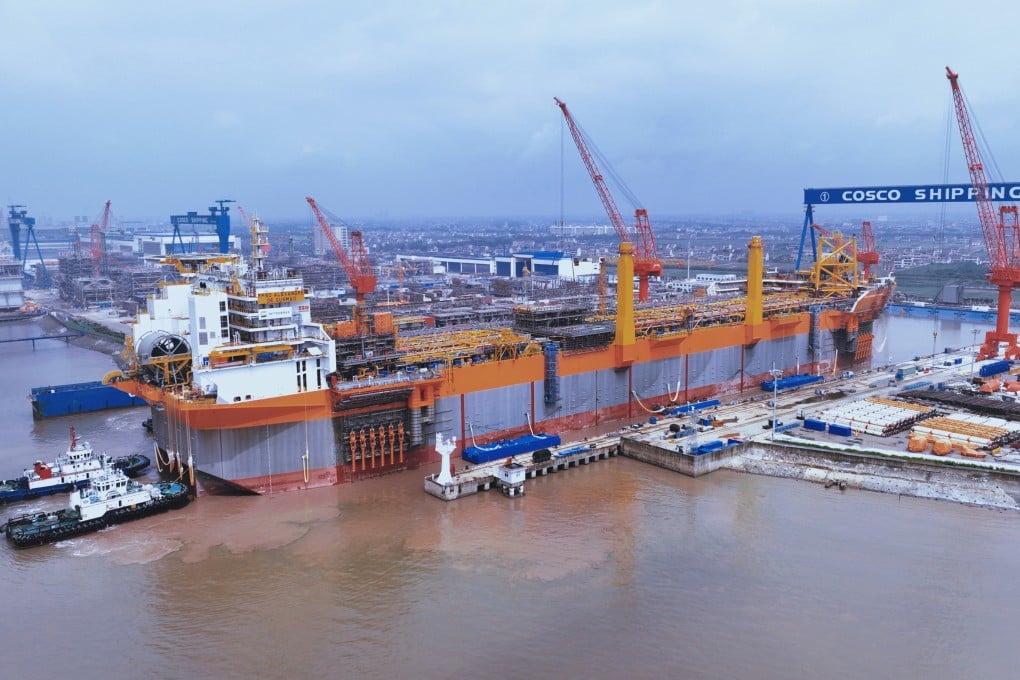China takes aim at energy crisis with world’s biggest crude-oil processor
- Huge processing vessel undocks as a chorus of calls and suggestions flag energy security pitfalls and call for Beijing to take action
- Russia’s invasion of Ukraine has pushed up global energy prices and raised fears in China about securing enough oil and gas

China undocked the world’s largest crude-oil-processing vessel by tonnage and storage at the weekend, as energy security has taking centre stage in policymakers’ risk-preventing playbook.
The floating production storage and offloading (FPSO) vessel, designed by Qidong Cosco Marine Engineering Co in east China’s Jiangsu province, will be capable of processing 180,000 barrels of oil per day and handling 12 million cubic metres of gas, according to state-backed Yangtze Evening Post.
The FPSO came at a time when Beijing is trying to shore up its energy supplies, especially with Russia’s invasion of Ukraine having pushed up global energy prices and brought huge uncertainties. FPSOs are used by the offshore oil and gas industry to produce and process hydrocarbons, and for oil storage.
China is the world’s largest crude-oil buyer. It imported 508 million metric tonnes of crude oil, mainly through Saudi Arabia and Russia, last year, which represents more than 70 per cent of its crude requirements.
The new vessel is 335.31 metres long, 60 metres wide, and 33.51 metres deep. It has a maximum storage capacity of 1.4 million barrels of crude oil, according to the report.